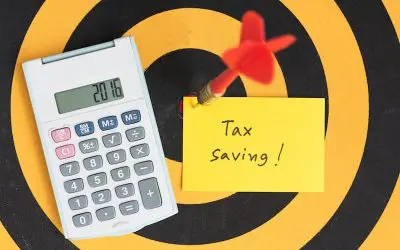Many beginning investors are hesitant to jump into the world of investing because they’re worried their debt is going to hold them back. Some worry that they need to be completely debt free in order to make financially responsible decisions in investing. In our recent debt and investing podcast, we discussed that having debt doesn’t always mean your real estate investing dreams have to come to a halt.
It’s important to realize that not all debt is bad debt. Some financial gurus advocate for being completely debt free, which includes car payments and student loans and mortgages. While this is a great goal for some, it also takes significant time, work, and sacrifice to make it happen. There’s a difference between good debt and bad debt, and working your life away to be rid of all debt may not be necessary to earn money in real estate.

To determine good debt vs. bad debt, it’s important to consider how the debt works for you. If you owe money on something that is making you money, it’s good debt. Examples of good debt include business debt, student loan debt or real estate investment debt. Although you owe a specific person or institution money, eventually that business or education will start making you money. Bad debt is something that is consistently costing you money. Examples of bad debt are vehicles and credit cards. Having good debt is not an obstacle when it comes to investing in real estate, but too much bad debt is another story.
When buying a home, many naïve buyers fall for the “this is the biggest, smartest investment you’ll ever make” line that encourages them to spend more than they planned on a home. Having future home equity is not the same as having money in the bank. Buying too much home in order to keep up with the Jones’ or satisfy an ego issue is a surefire way to stay financially chained to a home forever. When buying a home to live in, do your due diligence when it comes to research. Mortgage payments that cause you to struggle financially each month aren’t smart ideas. In some circumstances, renting may make more sense in certain markets. The smaller your mortgage payments, the more money you have each month to contribute to other things, like investments.

Having a nice car is something a lot of people dream of. They love the idea of people seeing them pull up in an expensive car and assuming that they’ve “made it.” But being thousands of dollars in debt because you drive a new car isn’t the same as “making it.” Smart beginner investors buy used cars in cash and run them into the ground, so to speak. The hundreds of dollars that others are paying in order to maintain appearances could be used to invest in things that will make them money. When you finally do “make it” you can feel confident rolling up in a luxury car that you waited for, earned, and paid for. That is the definition of “making it.”
Reducing your bad debt is smart when getting involved in investing. The less money you owe to other people, the more money you can pay yourself.
Here are a few ways you can reduce or eliminate your bad debt before you start investing:
- Make goals, write them down, and tell people about them. Successful investors have clear and obtainable goals that they are always working towards
- Live within your means. Carefully review the things in your life that you’re paying money for and decide if they are “needs” or “wants.”
- Make coffee at home. You’d be surprised how much those $5 daily lattes add up to. Making small changes like packing your lunch instead of eating out every day, making coffee at home, and finding cheap or free forms of weekend entertainment can help you save money and pay off bad debt quickly
- Sometimes, the best tool in combating debt is adding income. If you have a lot of bad debt, don’t spend more on real estate in an effort to pay it off. Find a second way to earn income to quickly throw at your debt.
- Practice self-disciple and delayed gratification. Part of being a responsible adult is being able to say “no” to things now so you can say “yes” to them later. Nobody is going to be checking in with you (except the debt collectors) about how you’re managing your debt. You have to decide to make responsible financial decisions to move towards your goals. Nobody else can do it for you.
To Pay It Off Or Not?
There’s no clear-cut answer about how to invest if you have debt. Experts in the industry have varying opinions about the issue, but there are a few key points that everyone can agree on. Cars and credit cards are some of the worst types of debt and should be addressed ASAP before moving forward with investments. If you’re still paying off your college degree, however, investing may not be totally off the table. Being free of bad debt frees up so much monthly income that you can put towards something else, like your first turnkey property. Many investors fail before they even start because they don’t know how to manage their money. Get a hold of your budget before you move forward with investing. Be in control of the money you currently make and spend before spending even more.
Being in debt doesn’t mean you have to put your real estate investing dreams on hold. It just means you need to reevaluate your income and expenses and adjust them accordingly. When you do invest in property, chances are you’ll be in debt for a short period of time. But as long as the property is making you money, you don’t have to worry. This is one reason people love turnkey properties so much. Since the property is set up to start earning investors money from day one, and investors don’t have to go further into debt for repairs and maintenance, debts can be paid off at lightning speed.
Not all debt is created equal, and being able to distinguish the good from the bad is crucial in determining when you’ll be in the smartest financial situation to jump into the real estate investing game.




